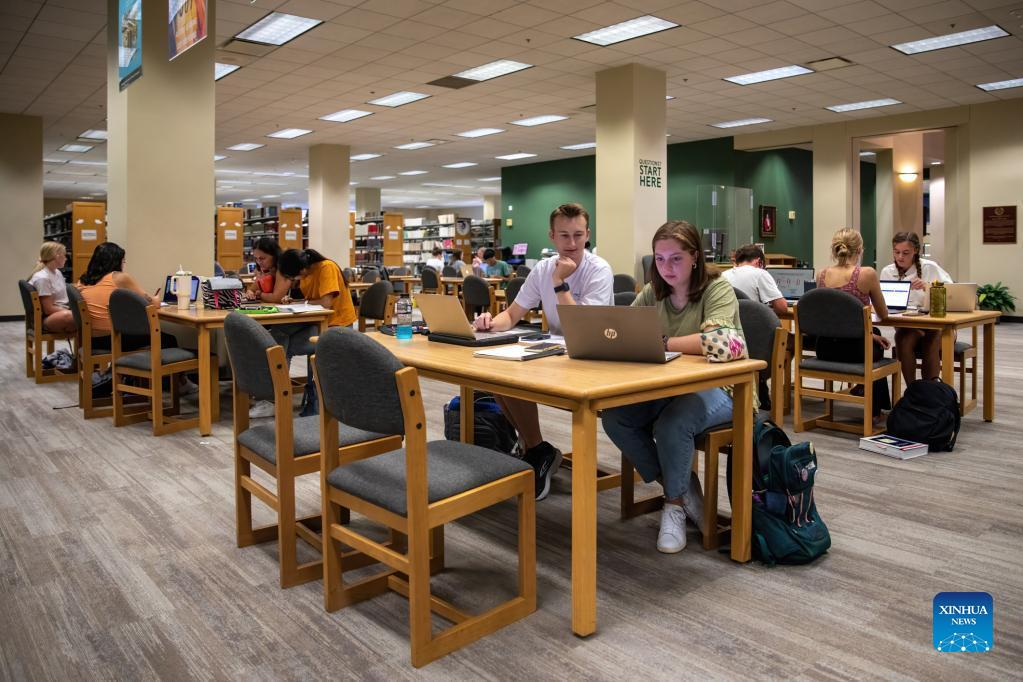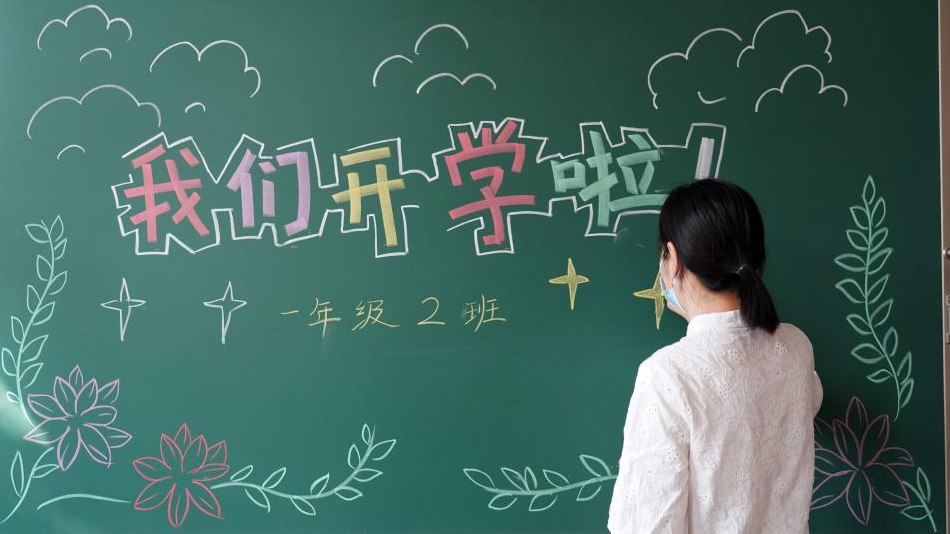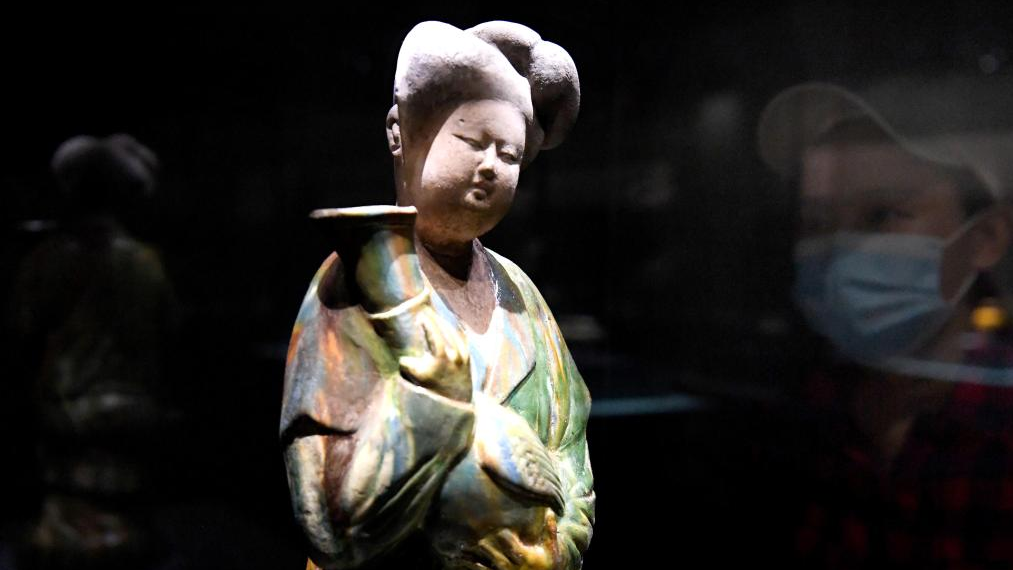Feature: Rising college cost, teacher shortage vexing for Americans
Students are seen at a library of Baylor University in Waco, Texas, the United States, on Aug. 28, 2022. (Photo by Xin Jin/Xinhua)
HOUSTON, Aug. 31 (Xinhua) -- Maggie O'Quine is restocking the bookshelves with books that students have returned at Baylor University in Waco, Texas.
Being a junior, she needs to work 15 hours per week as a librarian's assistant to cover her expenses as tuition at Baylor is increasing by the day.
The cost of a college education in the United States has risen exponentially over the last few decades. Data from College Board showed the average annual cost of public universities is 22,690 U.S. dollars for in-state students and 39,510 dollars for out-of-state students. That figure was only 1,410 dollars per year in 1971.
The number for private universities is even more startling, rising from 2,930 dollars in 1971 to 51,690 dollars today.
"When my oldest daughter started at Baylor in 2016, tuition was around 38,000 dollars per academic year; however, when my youngest begins her first year this fall, tuition has risen to 51,000 dollars," Vincent Duran, a Baylor parent who lives in Plano, Texas, told Xinhua.
Aside from rising college tuition, the country is also facing a growing shortage of primary and secondary school teachers.
According to the Texas Education Agency, Texas employed 376,086 teachers for the 2021-2022 school year. But nearly 12 percent of them left the profession during that same year.
"At the end of the spring semester, 30 percent of the teachers at my school left, and there was a 10 percent shortage at the start of this fall," Amber Chou, an AP chemistry teacher at Hillcrest High School in Dallas, Texas, told Xinhua.
Texas is not alone. School districts across the country have teacher shortfalls ranging from hundreds to thousands. Some allow non-certified individuals to step into classrooms as an alternative to long-term substitutes while others have to raise the class sizes and reduce the course options. In some remote rural areas, schools only hold four days of classes per week, or go back to online learning.
Many school districts are willing to pay high resettlement allowances to teachers who have relocated from other areas to hire enough teachers, local media reported. Nonetheless, it cannot fill the void.
"Over the last decade, there has been a significant decline in the number of degrees and certificates conferred in high-need specialties, including a 4 percent decrease in special education, a 27 percent decrease in science and mathematics education, and a 44 percent decrease in foreign language education," the American Association of Colleges for Teacher Education said in a press release issued earlier this year.
Experts said that the shortage is due to a number of factors, including teacher exhaustion and low wages, as well as the effects of the escalating "culture war" in the country. Many educators complain that politicians and parents lack respect for them, and many regional regulations and legislation keep them silent.
Furthermore, the coronavirus pandemic has been putting additional pressure on educators since it broke out in the country in early 2020.
"We face a looming crisis in losing educators at a time when our students need them most," said Becky Pringle, the President of National Education Association. "This is a serious problem with potential effects for generations."
The pandemic has both immediate and long-term consequences for students, analysts said. Some students' grades may suffer in the short term, while others may lack the study skills necessary to succeed in college and the workforce in the long run.
There has been a significant drop in overall child achievement, as well as a historical widening of achievement gaps in terms of race and economic status, researchers have found.
The pandemic poses challenges not only to students but also their teachers.
"Imagine the stress of having kids return after being away for a year and a half... Our teachers have struggled, especially coming back from COVID, because the kids haven't been at school in a long time, and they've forgotten how to behave at school," Tracy Fisher, a school board member from Coppell, Texas, said in an interview with Xinhua.
 |
Photos
Related Stories
- How U.S. "democracy" fails in Iraq, Libya
- U.S. Indo-Pacific policy "flawed," not fit for region's stability: scholar
- Vulnerable people suffer more as Americans ditch COVID measures: The Guardian
- U.S. economy to have one "whopper" of recession in 2023: scholar
- Dutch gov't concerned about U.S. gun violence after soldier's killing: The Washington Post
- U.S. private sector sees slower job growth in August as hiring shows signs of cooling
- Black Americans see racism as persistent challenge: poll
- Life expectancy in U.S. continues to drop, driven by COVID-19: NPR
- Over quarter of U.S. adults say they fear being attacked in neighborhood: survey
- Opinion: U.S. is squandering the faith of its people
Copyright © 2022 People's Daily Online. All Rights Reserved.










